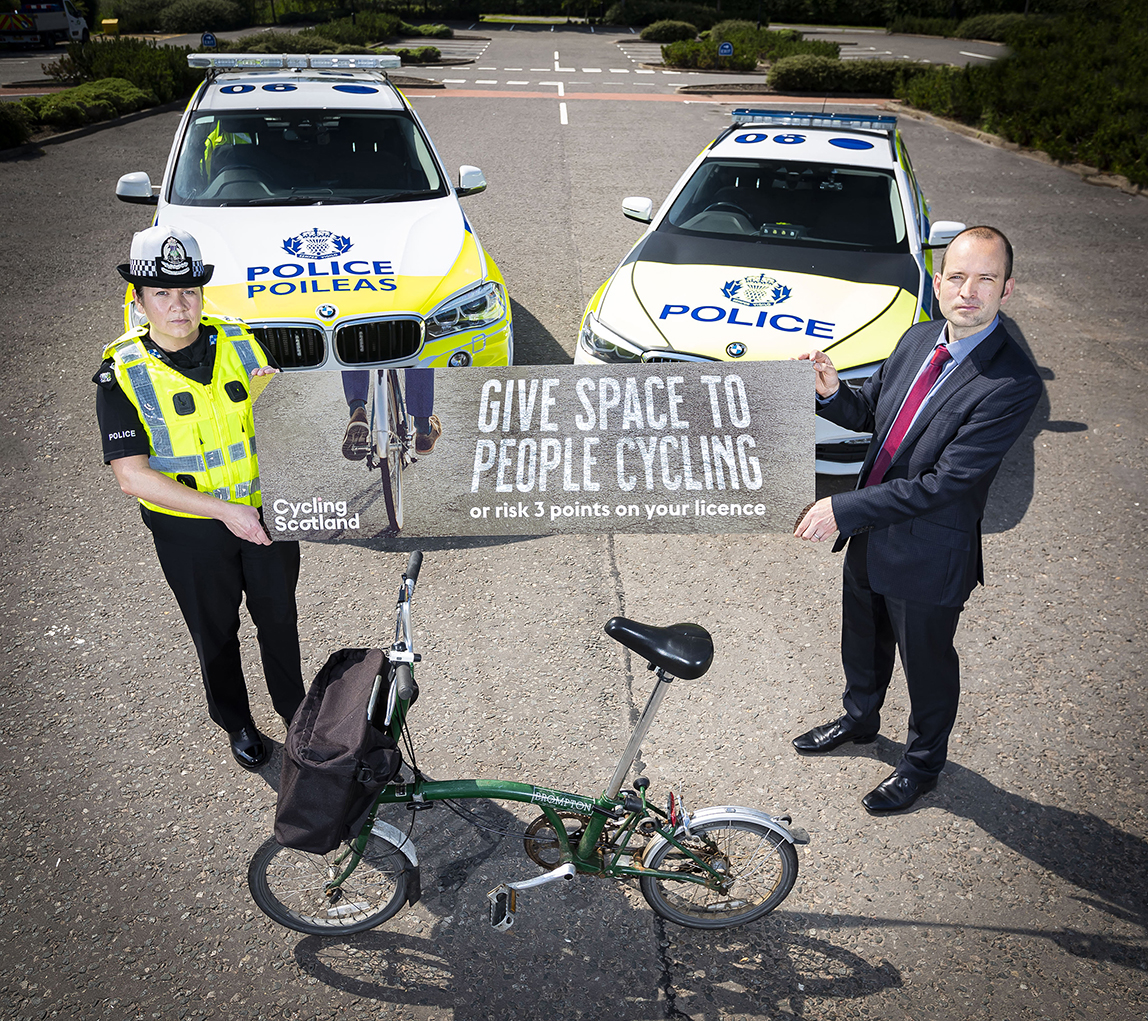
Cycling Scotland launches “Give Cycle Space” Road Safety Campaign, suported by the Scottish police
Since the coronavirus lockdown, Scotland has seen an increase in the number of people using its roads for cycling by 77%. This is why ECF Member Cycling Scotland launches the “Give Cycle Space” campaign, together with Police Scotland, to encourage all road users to show consideration and respect for the safety distances with cyclists.
More than a third (34%) of people living in Scotland don’t always leave 1,5 metres of safety distance and 80% find it “frustrating” when overtaking someone cycling. These are the worrying findings of the new polls produced by ECF Member ‘Cycling Scotland’ to mark the launch of its new nationwide advertising campaign “Give Cycle Space”. This initiative launched, in collaboration with the national Scottish police, arrives in the middle of a bicycle boom in Scotland: the number of people cycling increased by 77% in May 2020 compared to the same period in 2019.
This road safety campaign is addressed to those careless drivers that close-pass (overtake with less than a car’s width) someone cycling and puts lives at risk. In March 2019, 73% of people in Scotland didn't know you could get three points on your licence and a £100 fine if you leave 1,5 metres of safety distance with cyclists. In February 2020, awareness had improved by 9% but there’s still a long way to go to educate people about close passing and to change behaviour.
Over the summer months, Police Scotland will be conducting Operation Close Pass in locations across Scotland to promote the safe use of shared road space. Operation Close Pass sees a police officer in plain clothes cycling with a camera on their handlebars and the back of their bike. When they are passed too closely by a car, the police cyclist radios details to colleagues further up the road who pull over the motorist and direct them to a spot to talk to them about their driving.
The chat takes place by the roadside on a giant mat showing the correct minimum passing distance, usually defined as 1.5 metres. If someone is unreceptive to education then they will be cautioned for careless or dangerous driving and receive a court summons
Cycling Scotland Chief Executive Keith Irving said this year’s campaign is more important than ever: “Many people don’t realise that driving too close to someone is damaging even when no contact is made and can put people off cycling. Concern about road safety is also the main reason people don’t get back on their bike.” His organization push for more cycling lanes, separated from road traffic, as the top priority for making our roads safer for cycling but they also think that education and enforcement wherever necessary is needed to improve road safety for everyone.
The Scottish Government recognises that perceptions around road safety remain a barrier to people getting on their bikes, so they join this campaign to encourage new thinking and change behaviours in order to support cycling as a mode of transport which protects “our environment, our health and our wellbeing”. Cabinet Secretary for Transport, Infrastructure and Connectivity Michael Matheson said “As part of the Scottish Government’s response to the COVID-19 outbreak, we’re asking people to walk, wheel and cycle where possible to help manage demand on public transport. Rates of cycling have increased across the country and it’s important that we keep up this positive shift in behaviour and that it is supported by all road users”.
For more ideas/policy measures that should be adopted to encourage cycling through road safety, take a look at the Safer Cycling Advocate Programme best Practice Guide, the work of ECF, or our member in your country.
Regions:
Topics:
Contact the author
Recent news!
Upcoming events
Contact Us
Avenue des Arts, 7-8
Postal address: Rue de la Charité, 22
1210 Brussels, Belgium









